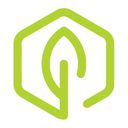Employing Remotely: What You Need To Remember

Guest Author: Luke Petit, Remote-How
One of the great benefits when hiring remotely is that your talent pool is not limited geographically. You can get the right person for the job without having to think about relocating anyone, or the practicalities of having enough office space. However, when working with a distributed workforce, there are other issues that can arise that don’t happen in a co-located office. The interview process can differ greatly, coordination between time zones may cause difficulties and communication can sometimes be lacking. By keeping these hurdles in mind, it’s more than possible to make a success out of hiring great remote workers for your company. Some effort is always required in the hiring process of any company, you just need to engage with the remote situation and take advantage where you can!
You need to find the right place to advertise your positions
It’s recommended that you make sure to post your remote positions in places where remoters are actively looking for jobs. At Dynamite Jobs, we’ve made it easy to start your remote career or find a brand new position that fits into your remote lifestyle. We cover different verticals and work closely with remote employers, making it a great place to help find the best remote job for you. The remote community is also fairly close-knit, so utilize your business network on LinkedIn and other online groups (Reddit and Facebook are good places to start) to find remote candidates. Online networking is a key skill for both remote workers and employers, so you’ll be less likely to get a negative response when trying to connect with someone new.
Remoters require a different skill set
Compared to workers in co-located offices, employees working remotely actually need to possess a different set of skills to work successfully. Communication is absolutely key when you have no physical presence or contact with your colleagues. Without being able to communicate in a clear manner across time zones and cultures, you’ll find that the work produced will suffer. So, when hiring and assessing employees, great emphasis should be placed on soft skills. These soft skills include communication, critical thinking, decision making, project management and other personal attributes.
Most applicants for a remote job will already have the tech know-how, which is, of course, an important part of working outside of the office. We all need to keep up to date with relevant tools like Asana, video-conferencing and Slack to physically be able to work remotely, but a good grasp of soft skills allows your employees to work at their full potential. To give another example, not having a manager constantly checking your work can lead to less motivation for some workers. Therefore, when working remotely greater importance needs to be placed on project management and self-discipline. It’s recommended then that you really try to hire candidates who possess such skills, and then try and nurture and improve them within your current workforce.
Create a hiring process tailored to remote work
One issue with hiring remotely is that unlike in a physical office, you might never actually get to meet your candidate face to face. Phone conversations and video calls are of course important, but a meeting in real life can tell you a lot more about your potential employee. There are ways to improve this tricky situation for remote workers, however. Video interviewing is a skill that can be built upon and probably the most important tool for a remote hirer. While voice calls can work to some extent, being able to talk face to face (albeit virtually) allows you to better read their body language and facial expressions.
Another part of the hiring process for remote workers should be setting some kind of task. By giving a clear deadline, you can see how they work independently and manage their time. Most co-located jobs set tasks now as well, but it’s even more important to do so for remote postings as this is how you will eventually be working with the candidate. A task prepared at home by someone who usually works in an office will not necessarily be a good indicator of their actual ability. However, setting a task for a remoter to do gives a much truer sense of how they will work, as it is done independently and without monitoring. During the whole hiring process, also take note of how the candidate communicates. This can be a useful indicator of their skills outside of video interviews and any task set.
Make sure they are a good fit for your company culture
After defining clearly your company’s culture and values, you need to make sure that any prospective hire will also fit in well. Company culture is even more important within remote companies due to it being the bond that sticks the team together. Without having a physical space to do this, you have to rely on a sense of cohesion that only your culture can create. By having a clear idea of your culture, you can then tailor questions and assessments based around your desired traits. If for example you highly value having a social team with lots of interaction, it’s best to find out sooner rather than later whether a potential candidate also agrees with this. The better the fit, the longer you’ll be able to retain your remote workers. They’ll also produce great work and most importantly be happy!
Remote future summit
If you’re interested in starting or even furthering your remote career, then there’s no better opportunity than to get involved with the Remote Future Summit from May 15th to 17th. The summit is an annual virtual conference focused on remote work and is a 100% online experience. Last year, the RFS attracted over 5000 participants from 105 countries, both remote work enthusiasts and decision-makers. This edition will also have live panels with experts and a Remote Job Fair for remote job seekers!
Author’s Bio
Luke Petit currently works as Marketing Manager for a Berlin-based tech start-up, whilst also producing content remotely. He spends most of his time creating digital marketing strategies, writing copy and hosting tech events throughout Berlin. By working remotely, he gets to experience the benefits of both flexible working arrangements and a start-up office environment.
Related Posts:


Featured Remote Jobs
 New Job! Featured Job Remote Job
New Job! Featured Job Remote Job New Job! Featured Job Remote Job
New Job! Featured Job Remote Job New Job! Featured Job Remote Job
New Job! Featured Job Remote Job New Job! Featured Job Remote Job
New Job! Featured Job Remote Job Opened 7 days ago Featured Job Remote Job
Opened 7 days ago Featured Job Remote Job Closes in 10 days Featured Job Remote Job
Closes in 10 days Featured Job Remote Job Closes in 7 days Featured Job Remote Job
Closes in 7 days Featured Job Remote Job Closes in 4 days Featured Job Remote Job
Closes in 4 days Featured Job Remote Job Closes in 3 days Featured Job Remote Job
Closes in 3 days Featured Job Remote Job
